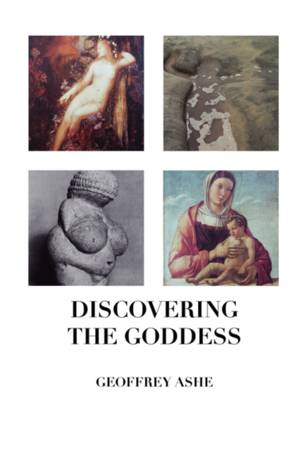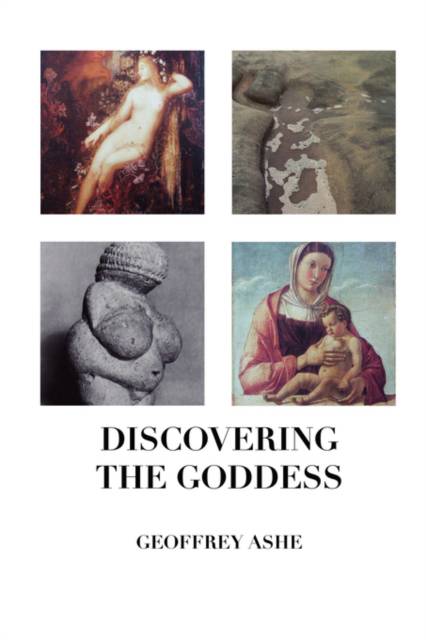
- Afhalen na 1 uur in een winkel met voorraad
- Gratis thuislevering in België vanaf € 30
- Ruim aanbod met 7 miljoen producten
- Afhalen na 1 uur in een winkel met voorraad
- Gratis thuislevering in België vanaf € 30
- Ruim aanbod met 7 miljoen producten
Omschrijving
A personal account of the new movement of the Goddess by one of the most highly repested authors on religion and paganism in Britain, Geoffrey Ashe.
EXTRACT FROM THE BOOK:
At Portland State University, Oregon, I give a summer course as a visiting professor, on Goddess myth and history and its implications. When I launched it in 1990 it was, to the best of my knowledge, the only course of its kind at any such institution. Possibly it still is. Looking back over the involvement that has led me to it, I realize that this has been very long and rather curious, and that it sheds light on one or two little-publicized factors in the Goddess movement. Since the movement seems to have to stay, I think the story worth telling. I have never told it in print before.
It begins in the 1940s when I was an incipient writer, hardly beyond the stage of doing the odd book-review. My first original piece with any substance was an article on Robert Graves's historical novels, which enthralled me, especially I, Claudius and Claudius the God. My article was published in Tribune, then a serious weekly of which Orwell had lately been literary editor.
The BBC made use of it. I sent a copy to Graves in Majorca. He replied with an extraordinary letter, running back and forth and up and down on one flimsy sheet of paper. The article, he said, was the first study of his novels that anybody had written. Among several abrupt questions and unconnected remarks, he mentioned an impending new book of his, based, he told me, on a complicated Welsh riddle. I could make nothing of his account of this. When it appeared, it turned out to be The White Goddess. It was ahead of its time. As is well known, Graves's usual publishers turned it down. But the book came into its own in the Goddess revival, which it helped to inspire.
Specificaties
Betrokkenen
- Auteur(s):
- Uitgeverij:
Inhoud
- Aantal bladzijden:
- 60
- Taal:
- Engels
Eigenschappen
- Productcode (EAN):
- 9781861711953
- Verschijningsdatum:
- 6/01/2008
- Uitvoering:
- Paperback
- Formaat:
- Trade paperback (VS)
- Afmetingen:
- 156 mm x 234 mm
- Gewicht:
- 95 g

Alleen bij Standaard Boekhandel
Beoordelingen
We publiceren alleen reviews die voldoen aan de voorwaarden voor reviews. Bekijk onze voorwaarden voor reviews.











